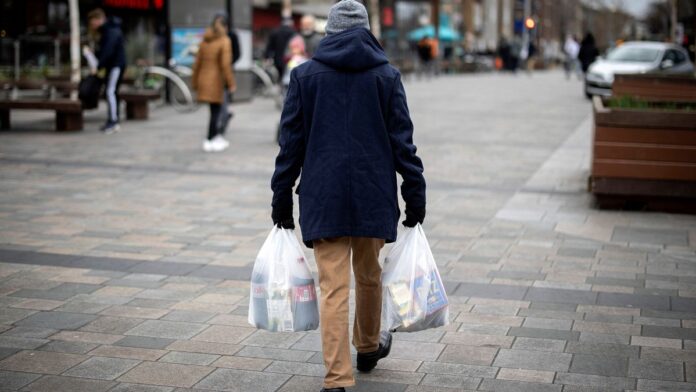Real typical household disposable income growth for working age families has slumped to just 0.7 per cent a year in the 15 years leading up to the Covid-19 pandemic, leaving households, particularly those in rented accommodation and with young children, brutally exposed to the current cost-of-living crisis, according to new research published today by the Resolution Foundation.
The Foundation’s 14th annual Living Standards Audit takes a long view of what has happened to household incomes in Britain over recent decades, what has driven periods of growth and stagnation, and the lessons that need to be learned if Britain is to return to stronger income growth in the decade ahead.
The authors note that Britain’s recent record of low income growth matters more than ever as it is having a material impact on households’ ability to cope with the cost-of-living crisis.
Too many families today have to cope with low disposable incomes, little or no private savings (over one-in-four have less than a month’s worth of financial buffer), and a weak social safety net to fall back on (basic unemployment support is now down to just 13 per cent of average pay, its lowest level on record).
The report shows just how stark Britain’s living standards slump has been. Between 1961 and 2004-05, typical household incomes for non-pensioners grew by 2.3 per cent per year, on average, or 25 per cent per decade. Between 2004-05 and 2019-20 however, typical income growth slowed to just 0.7 per cent per year.
Even more starkly, the typical incomes of the poorest fifth of the population were no higher on the eve of the pandemic than they were back in 2004-05, despite GDP per person growing by 12 per cent over this period.
The report shows that Britain has experienced a toxic combination of both low growth, and persistently high income inequality.
While the big rise in inequality took place in the 1980s (the Gini coefficient increased by 13 percentage points between 1978 and 1992), successive governments since then have failed to reduce overall income inequality in Britain. As a result, the top ten most unequal years on record have all been in the 21st century, with five taking place since 2013-14.
This picture of low growth and high inequality has left some groups particularly exposed to the cost-of-living crisis, say the authors.
On the eve of the pandemic, the typical household income of families in social and private rented accommodation was 37 and 24 per cent below overall typical income respectively. The incomes of single parents were 35 per cent lower, while the household incomes of children under the age of five were 20 per cent lower.
In contrast, the groups with typical incomes significantly above the overall median include: couples without children (33 per cent higher); mortgagors (27 per cent higher); those aged 55-60 (19 per cent higher); and, those in the South East of England (12 per cent higher).
The report notes that pay is the main driver behind Britain’s living standards slump. Typical wages are no higher today than they were before the financial crisis, representing a wage loss of £9,200 per year, compared to a world in which pay growth had continued its pre-financial crisis trend.
And despite some claiming that economic growth no longer feeds through to household living standards, the cause of Britain’s wage slump is weak growth. The report shows how productivity, pay, and income growth have generally moved in lock-step with each other in recent years.
However, employment and hours also matter for income growth, and Britain’s far better recent record on jobs growth has helped to push up living standards for low-income families.
The report finds that between 2007-08 and 2019-20, the employment rate rose by 6 percentage points among the poorest half of the working-age population, compared to 2 percentage points among the richest half, and that the proportion of working-age households with no earnings has fallen by 6 percentage points over the past 25 years to 15 per cent.
Concluding, the report says that while pay and productivity are not the only drivers of disposable income growth – Britain has low levels of direct tax rates compared to other advanced economies, while rents as a share of income are comparatively high – it will be practically impossible for Britain to turnaround its recent record of low growth and high inequality without stronger, productivity-led economic growth.
It adds that stronger income growth will not only help households to enjoy higher living standards in good times, but will also help provide stronger protection in tougher economic times.
Adam Corlett, Principal Economist at the Resolution Foundation, said:
“Households across Britain – and across many other countries – are currently grappling with high levels of inflation that we haven’t seen for generations.
“But while many of the causes of the current crisis are global in nature, it is Britain’s recent history of low income growth and high inequality that has left so many households really struggling to cope.
“Britain’s poor recent record on living standards – notably the complete collapse of income growth for poor households over the past 20 years – must be turned around in the decade ahead.
“To do that, we must address our failure to raise pay and productivity levels, strengthen our social safety net, reduce housing costs and build on what we’ve done well – such as boosting employment for lower-income households.”







